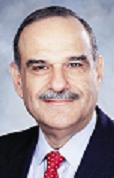EXTRA: Surge in homeless hits New Orleans ...
By Bill Sasser, Christian Science Monitor:
The city has double the homeless it had before hurricane Katrina – but far fewer emergency shelters.
Up to 40 people were believed to be living in the Economy Motor Lodge on Tulane Avenue when a fire struck the long-abandoned property on the night of March 7. Located six blocks from the mayor's office and just down the street from the Superdome, the fire was the fourth at the boarded-up motel since hurricane Katrina.
Rescue workers spent the next day searching the ashes for possible victims. None were found, though one man who had apparently slept though the blaze emerged from the building the next morning. The city has since ordered the property torn down.
Behind that four-alarm fire lies a disturbing trend: Hurricane-ravaged New Orleans faces a major crisis with homelessness. Already taxed to the breaking point on many fronts, the city has a homeless population that is now approximately double what existed before the storm – in a city half its previous size.
Facing a severe shortage of affordable housing, displaced residents returning to the city along with an influx of construction trade workers are being forced to sleep in everything from cars to flooded-out houses to long-abandoned motels, as Katrina relief workers from across the country still struggle to fill gaping holes in the city's social services.
"The vast majority of emergency shelters have not been reopened since Katrina," says Martha Kegel, executive director of UNITY, a regional collaborative of 60 agencies serving the homeless. "There's an enormous shortage of housing and people are desperate. Do we have the resources to deal with this problem? No."
While New Orleans has long struggled with poverty, the face of homelessness has changed since Katrina, Ms. Kegel and other advocates say. The population now includes the chronically homeless who never left the city or have returned; residents who lost their homes to the flood and have run out of federal assistance – or may have never received assistance – and cannot afford higher rents; and thousands of Latino workers who came to rebuild the city, many of whom brought their spouses and children and cannot find a place to live.
"I've been into some of these buildings myself and seen dozens of people living in them, including very young children," Kegel says. "One of the most shocking things we're seeing now are the very elderly who are living in abandoned buildings and on the street – people in their late 80s living this way, who never in their lives expected to be homeless."
The city has double the homeless it had before hurricane Katrina – but far fewer emergency shelters.
Up to 40 people were believed to be living in the Economy Motor Lodge on Tulane Avenue when a fire struck the long-abandoned property on the night of March 7. Located six blocks from the mayor's office and just down the street from the Superdome, the fire was the fourth at the boarded-up motel since hurricane Katrina.
Rescue workers spent the next day searching the ashes for possible victims. None were found, though one man who had apparently slept though the blaze emerged from the building the next morning. The city has since ordered the property torn down.
Behind that four-alarm fire lies a disturbing trend: Hurricane-ravaged New Orleans faces a major crisis with homelessness. Already taxed to the breaking point on many fronts, the city has a homeless population that is now approximately double what existed before the storm – in a city half its previous size.
Facing a severe shortage of affordable housing, displaced residents returning to the city along with an influx of construction trade workers are being forced to sleep in everything from cars to flooded-out houses to long-abandoned motels, as Katrina relief workers from across the country still struggle to fill gaping holes in the city's social services.
"The vast majority of emergency shelters have not been reopened since Katrina," says Martha Kegel, executive director of UNITY, a regional collaborative of 60 agencies serving the homeless. "There's an enormous shortage of housing and people are desperate. Do we have the resources to deal with this problem? No."
While New Orleans has long struggled with poverty, the face of homelessness has changed since Katrina, Ms. Kegel and other advocates say. The population now includes the chronically homeless who never left the city or have returned; residents who lost their homes to the flood and have run out of federal assistance – or may have never received assistance – and cannot afford higher rents; and thousands of Latino workers who came to rebuild the city, many of whom brought their spouses and children and cannot find a place to live.
"I've been into some of these buildings myself and seen dozens of people living in them, including very young children," Kegel says. "One of the most shocking things we're seeing now are the very elderly who are living in abandoned buildings and on the street – people in their late 80s living this way, who never in their lives expected to be homeless."





0 Comments:
Post a Comment
<< Home